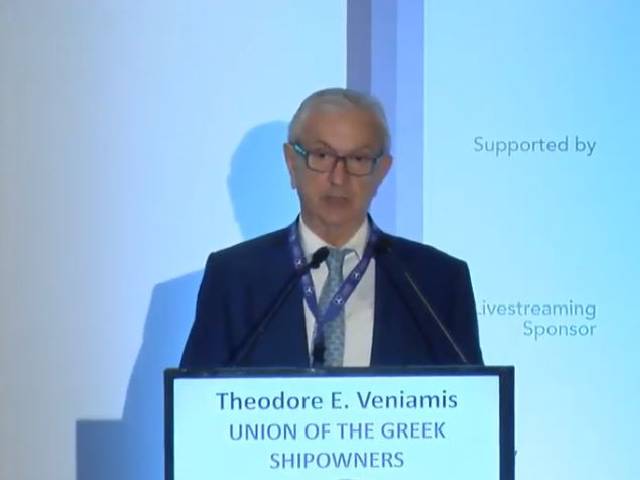The Union of Greek Shipowners (UGS) and the Swedish Shipowners’ Association join forces with the environmental Non-Governmental Organization (NGO) Transport & Environment to call on the European Commission to adopt a tailored approach for the international shipping industry in the context of the EU Emissions Trading System (ETS) review.
In a joint letter issued, the three organizations underline the specific characteristics inherent to the shipping industry and advocate for an ambitious, fit-for-purpose approach.
More specifically, the co-signatories call for a dedicated shipping fund to guarantee price stability, reduce business uncertainty and limit financial costs and the administrative burdens for the thousands of Small and Medium-Sized Enterprises (SMEs) that form the backbone of the shipping industry. A fund should also finance the necessary R&D into new green marine fuels, without which the decarbonization of the industry will not be possible. Crucially, these new fuels and technologies will need to be developed by out-of-sector stakeholders, such as energy providers, shipyards, engine manufacturers.
The co-signatories also call on the European Commission to apply the “polluter pays” principle and designate commercial operators, i.e., the party paying for the fuel and controlling the vessels’ carbon footprint, as the responsible entity under the upcoming EU Market-Based Measure (MBM).
Finally, the co-signatories ask the Commission not to allocate free allowances as, due to the characteristics of the different shipping sectors, these could lead to distortions of competition and unnecessary complexity. A phase-in period would be preferable.
Commenting on the joint initiative, the UGS President, Mr. Theodore Veniamis, stated: “Including shipping in the EU ETS without a fund and without making commercial operators responsible would unnecessarily disrupt the industry. Carbon trading is susceptible to distortion, profiteering and speculation. Any EU MBM should be scalable and compatible with future IMO measures and should take into account the fact that SMEs are the mainstay of the international shipping industry. The EU’s objectives can and must be achieved through less burdensome and unsuitable means.”
Mr. Veniamis concluded: “Notwithstanding the fact that the European shipping industry is a cross-trader par excellence and cannot function with a patchwork of regional regimes, the industry has spent the past months proactively working on a feasible solution that would contribute to ambitious environmental objectives and would facilitate its energy transition. Joining forces with environmental NGOs and other business associations, we call on the Commission to take serious note of our recommendations when drafting its proposal.”









































